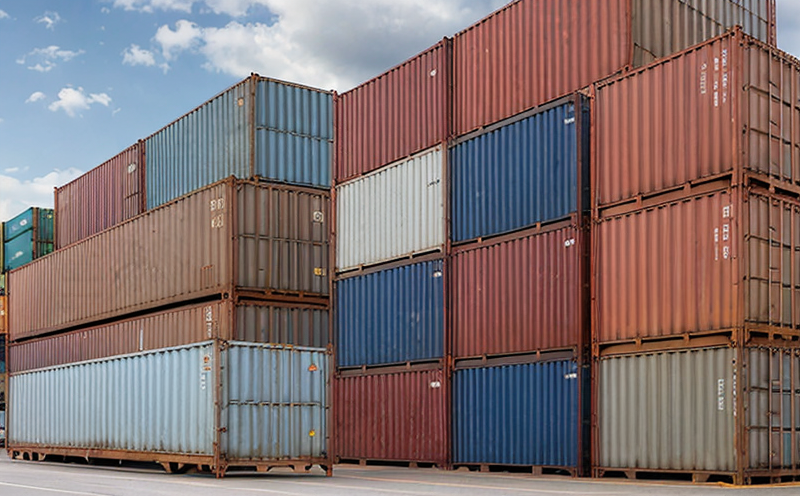ISO 8124 Toy Safety Compliance Testing for Export Products
The ISO 8124 series of standards is a critical set of guidelines designed to ensure that toys are safe and suitable for their intended use. Compliance with these standards is not only essential for avoiding legal penalties but also for maintaining consumer trust and ensuring product safety in the global marketplace.
ISO 8124-1 covers mechanical and physical properties, including small parts and balls, which can pose choking hazards to children. ISO 8124-2 focuses on flammability requirements, while ISO 8124-3 addresses chemical safety, particularly in relation to substances that may be harmful if ingested or come into prolonged contact with skin.
For toy manufacturers exporting products internationally, especially to regions like Europe and North America where stringent regulations are enforced, compliance is mandatory. The standards apply not only to traditional toys but also to educational materials, games, and any other items designed for children under 14 years old.
The testing process involves rigorous inspections at various stages of product development. This includes initial assessments by engineers who ensure that the design meets all relevant safety criteria, followed by laboratory tests using state-of-the-art equipment. These tests are conducted according to international standards and protocols to guarantee accuracy and reliability.
Manufacturers must provide detailed documentation regarding their compliance efforts, including test reports, chemical analysis results, and records of any modifications made during the production process. Failure to comply can result in product recalls, legal action, and damage to brand reputation.
The importance of ISO 8124 cannot be overstated; it sets a benchmark for toy safety that protects children from potential dangers. By adhering to these standards, manufacturers demonstrate their commitment to quality control and consumer safety.
Why It Matters
Compliance with ISO 8124 is crucial because it directly impacts brand reputation and market access. Failure to meet the required standards can lead to product recalls, legal disputes, and significant financial losses due to non-compliance penalties or lost sales.
- Consumer Trust: Compliance builds trust among consumers who are more likely to purchase products from reputable brands.
- Market Access: Many countries have strict import regulations that require certification of toy safety. Non-compliance can result in the product being banned or detained at customs.
- Legal Protection: Meeting these standards helps protect manufacturers and suppliers from potential lawsuits stemming from accidents involving non-compliant toys.
The long-term benefits include enhanced reputation, increased sales, and a safer environment for children worldwide. It is also important to note that compliance with ISO 8124 fosters innovation by encouraging safer product designs and materials.
Scope and Methodology
| Test Parameter | Description |
|---|---|
| Small Parts and Balls | Evaluates the size, shape, and material of parts to ensure they do not pose a choking hazard. |
| Flammability | Assesses how easily materials ignite and burn under specified conditions. |
| Chemical Safety | Detects the presence of harmful chemicals that could be ingested or come into prolonged contact with skin. |
The testing process typically involves several stages:
- Initial Inspection: Conducted by trained engineers who assess the design for compliance with ISO 8124 standards.
- Laboratory Testing: Uses advanced equipment to perform mechanical, physical, flammability, and chemical tests.
- Detailed Documentation: Records all test results, modifications made during production, and other relevant information.
Compliance testing is not a one-time process; it requires ongoing monitoring and updates as new standards are introduced or existing ones evolve. Regular audits by independent third parties can help ensure continuous adherence to these stringent safety requirements.
Why Choose This Test
- Global Recognition: ISO 8124 is internationally recognized and widely accepted in many countries, ensuring broad market access.
- Consumer Confidence: Compliance builds trust among consumers who are increasingly aware of safety issues related to children's products.
- Legal Protection: Meeting these standards provides legal protection against potential lawsuits and regulatory actions.
- Innovation Stimulation: Adherence encourages safer product designs, fostering innovation in toy manufacturing processes.
The rigorous nature of ISO 8124 ensures that the toys manufactured are safe for children worldwide. This comprehensive approach to safety testing is essential for maintaining a high level of trust with consumers and regulatory authorities alike.





